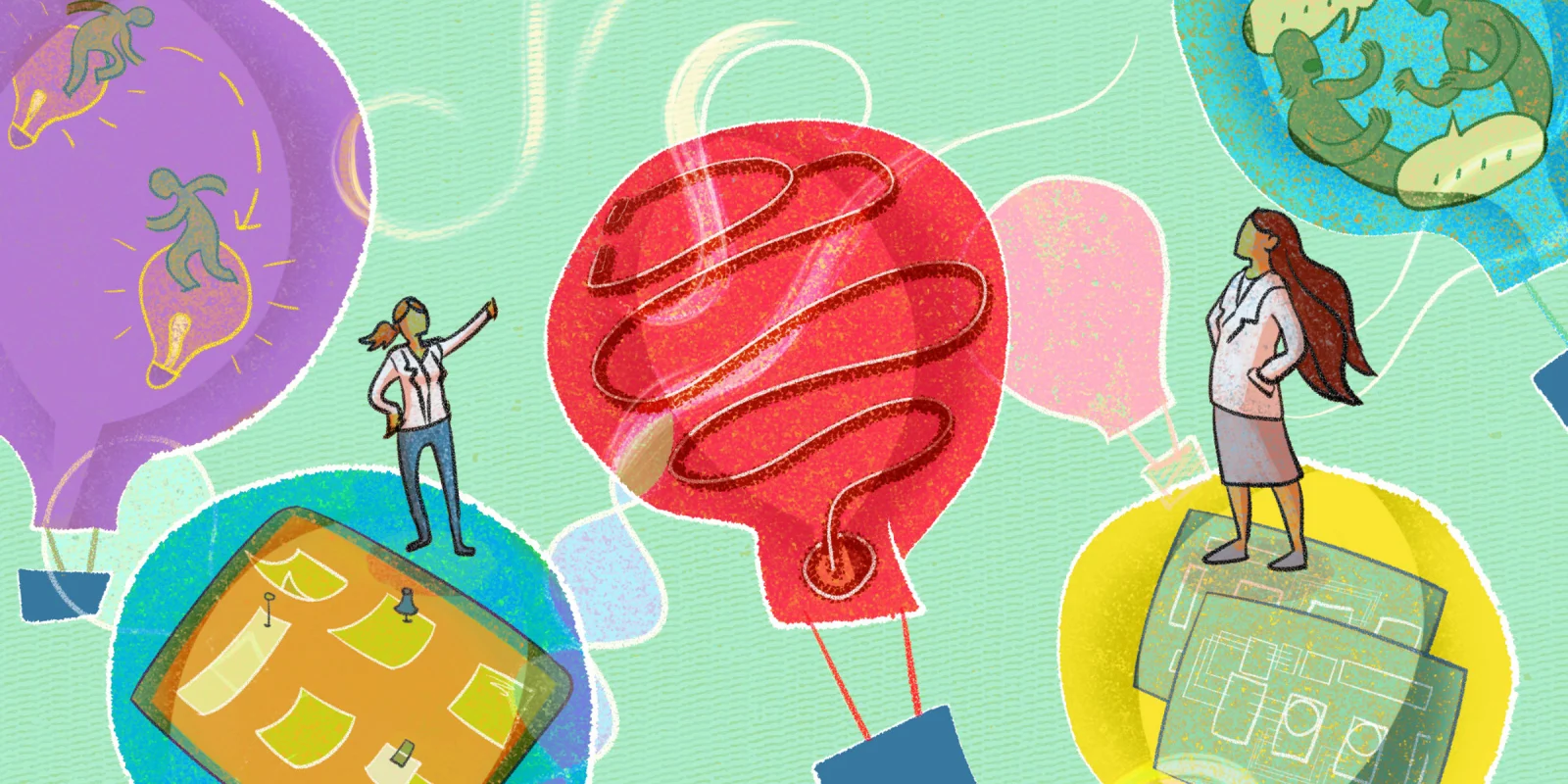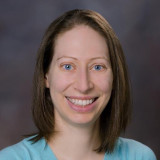A year and a half ago, if I had predicted that fandom for and quotes from a Broadway Musical and an underdog sports-themed comedy would combine to energize women in medicine and their #heforshe allies during a virtual international conference, I suspect I would have been met with suspicion.
But an incredible bolus of energy, boosted by social media & meeting-tweeting along with refrains from Hamilton and "Ted Lasso," was exactly what was generated at the September 24-25 virtual Women in Medicine Summit (WIMS).
Beginning with a student pre-conference and twitter chat on September 23 and living on through a live podcast wrap-up discussion on September 28, the two days of the main conference more than lived up to it’s full title: Women in Medicine Summit: Evolution of Empowerment.
Across plenaries and breakout sessions, across physicians and non-physicians, across clinicians and non-clinicians, and ranging from established faculty to students, the Women in Medicine Summit harnessed, channelled, and vaulted what we needed 18 months into the COVID-19 pandemic: camaraderie, catharsis, empowerment, optimism, activism, and forward momentum for women across the health professions.
Drs. Helen Burstin and Ngozi Ezike both began with highly eye-opening sessions regarding not only how women can lead effectively but that women are uniquely suited to deliver high EQ, inclusive leadership. The theme of effective leadership, both pandemic and non-pandemic, provided high value lessons not only for those currently leading or planning/hoping to lead soon, but leadership lessons for those being led that help one recognize (in)effective leadership when it happens. (Again this year, Dancing With Markers captured visual summaries of most talks, including Dr. Burstin’s lecture.)
Dr. Kimberly Manning focused on the next theme of the power of narrative, directly referencing the musical Hamilton. Paraphrasing the famous song line, “Who tells your story?”, Dr. Manning asked the audience, "who tells YOUR story?" empowering us to both seize the power of our own narrative and to amplify the narratives of others. She helped us understand the power of narrative and that storytelling transcends beyond fleeting encounters, and that a deeper awareness of this power must be brought to our DEI efforts including direct patient care. Seeing this theme weave its way through the Summit as a whole, we also learned that allyship (both #SheForShe and #HeForShe) often takes the form of learning someone’s “why” and amplifying another’s voice. Drs. Brittani James and Brandi Jackson’s keynote “Antiracism” served as another powerful rallying call to activism through concrete action.
In a delightfully surprising twist, the rogue hit “Ted Lasso” also provided a mirror through which to appreciate the #heforshe and #sheforshe themes of the Summit. Already energized by #HeforShe award winner and dedicated ally, Dr. Mark Shapiro, and his Ted Lasso fandom-inspired-hashtag #MedLasso, Summit attendees quickly drew connections to themes from the show. Beyond the wonderfully insightful line, “Be curious, not judgmental”, the line “There’s no Rebecca without Keeley” (from Hannah Waddingham’s Emmy acceptable speech) quickly emerged as a unifying cry to amplify the power of community, connection, and allyship. (The post-Summit live podcast event aforementioned was indeed a #MedLasso discussion.)
Immeasurable credit goes to Dr. Shikha Jain, founder and chair of the Women in Medicine Summit, and the WIMS steering committee for the conference they developed and completed. Not only was it fantastic but it was dynamic, energizing, and a successful community-building event across the virtual space for the second year in a row. The meeting planning committee also deserves immense credit for their choice of speakers, bringing a breadth and depth of content to the plenary talks and breakout sessions. The WIMS team embodies the content it shares — finding and amplifying impactful AND diverse voices, bringing diversity of identities, lived experiences, content expertise, and experience to the WIMS community. The slate of sessions was also remarkable for the cohesiveness of unifying themes that resonated across the two days without ever feeling duplicative or repetitive.
Having attended multiple virtual conferences in the last year and a half, I can definitely state that WIMS is unique in the energy that rippled through the chat bars and #MeetingTweeting (via #WIMStrongerTogether). As Dr. Jain said herself, this was the closest a chat bar and meeting tweeting could come to a standing ovation — session, after session, after session.
The Women in Medicine Summit may be a singular event, but it is not a solo event. We cannot move things forward and close the gender equity gap by coming together only once a year. WIMS has expanded its reach, impact, and foundational work throughout the annual cycle through its recurring lecture series and longitudinal initiatives such as the Leadership Primer for early career faculty, the Leadership Accelerator for mid-career faculty, and the Inclusive Leadership Development Lab for male allies. Further accelerating means to tell our stories and share our voices, 2021 also saw the launch of the WIMS Blog and WIMS Speakers Bureau.
To honor the work of the Women in Medicine Summit all year-round: support women, amplify women, mentor women, sponsor women. “Woman up!”
Avital O’Glasser, MD, is a hospitalist at Oregon Health & Science University (OHSU) and the medical director of OHSU’s Preoperative Medicine Clinic. She is a founding member of the Advancing Vitae and Novel Contributions for Everyone (ADVANCE) group, which works to promote gender equity through CVs and other professional documents, and she is the inaugural editor of the WIMS blog (Twitter: @aoglasser). Dr. O'Glasser has no conflicts of interest to report.
Illustration by April Brust







